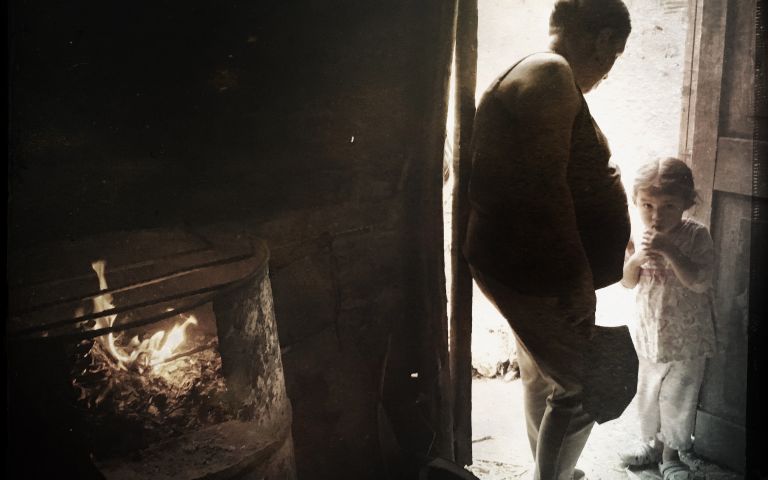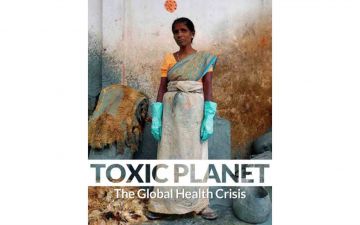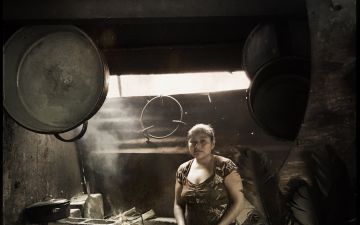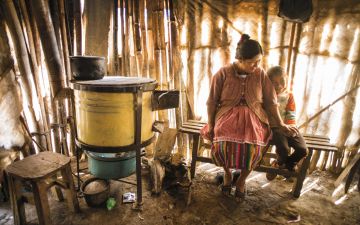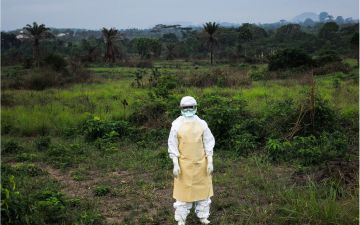Nearly half the people on earth use open fires to cook their food and heat their homes, and the price they pay is steep. In the developing world, smoke inhalation is the leading cause of death of both women and children under five; women and girls spend up to 20 hours a week gathering firewood; children often suffer serious and even life-threatening burns from old or poorly constructed stoves.
Household stoves are also a major source of black carbon, a pollutant whose sunlight-absorbing properties are disrupting the Asian monsoon and contributing to the accelerated melting of the Himalayan glaciers. While safer, more efficient cookstoves would better the lives of billions and ease the effects of global climate disruption, this seemingly simple change is hindered by engineering, economics, and culinary tradition.
Writer Michelle Nijhuis and photographer Lynn Johnson, working on assignment for National Geographic, traveled to Guatemala to document the challenges of improving cookstoves—and human lives—in the developing world.
